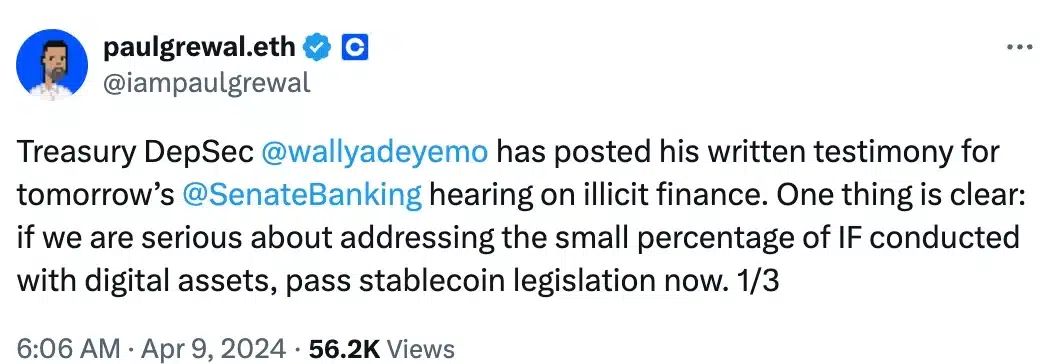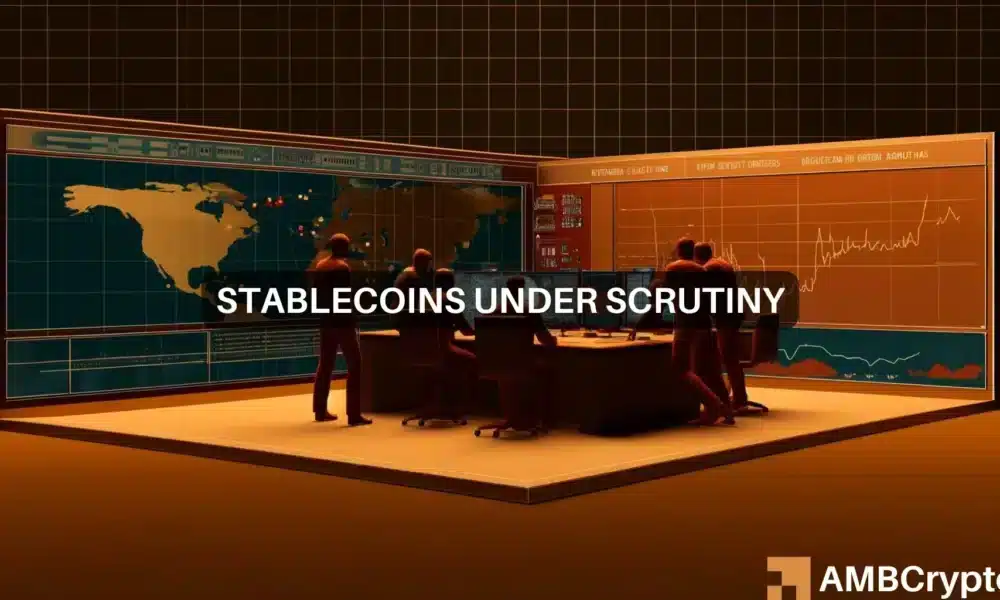- Concerns have been raised about the regulation of stablecoins and their impact on national security.
- Former CFTC Chairman Massad emphasized the need for stablecoin regulation to prevent illegal activity.
The entire cryptocurrency market seems to be in a slump. Bitcoin [BTC] Various other cryptocurrencies are showing red candlesticks on their daily and weekly charts. Meanwhile, concerns about the regulation of stablecoins have also emerged.
Agencies such as the Commodity Futures Trading Commission (CFTC) and the Securities and Exchange Commission (SEC) are considering classifying and regulating cryptocurrencies.
However, some have pointed out that there is still a lack of proper regulatory framework for stablecoins, even as more people use them as an alternative to the US dollar.
The lack of regulatory oversight for stablecoins specifically raises the question of whether they could pose a risk to national security, given their central role in cryptocurrency transactions.
The current state of stablecoins
Recent cases of the SEC scrutinizing various cryptocurrency companies suggest that the U.S. government may not be in favor of cryptocurrencies, or even stablecoins, due to national security concerns.
Additionally, there are concerns that widespread adoption of stablecoins could undermine the ability of the United States to effectively impose sanctions.
Timothy Massad, chairman of the CFTC and an Obama appointee, cited a similar example in a recent conversation He said on the Bankless podcast:
“Hamas is using cryptocurrencies and stablecoins to some extent. Similarly, there have been reports of the Russians using Tether to buy weapons and circumvent sanctions, so I think that's happening.”
Massad believes that because stablecoins are built on decentralized blockchains, there could be challenges in effectively tracking and regulating transactions.
Therefore, he called for a regulatory framework to ensure that everyone abides by the law and prevent illegal activities in the cryptocurrency sector.
The Need for Stablecoin Laws
April 17th, Blog Post Speaking at a talk titled Stablecoins and National Security: Learning the Eurodollar’s Lessons, Massad noted the similarities between stablecoins and the Eurodollar, adding:
“Both stablecoins and Eurodollars are U.S. dollar-based liabilities that originate outside the regulated banking system.”
Here he points out that despite being initially overlooked, the Eurodollar eventually became a vital part of the global financial system, underpinning the dominance of the dollar and the monetary power of the United States.
So the question is: will stablecoins achieve a similar future?
Echoing the need for stablecoin legislation, various executives have previously expressed concerns, as Coinbase Chief Legal Officer Paul Grewal pointed out:

Source: Paul Grewal/X
As a result, while some lawmakers, such as Senators Cynthia Lummis and Kirsten Gillibrand, have signaled their recognition by introducing the Lummis-Gillibrand Payment Stablecoin Bill, there is still no consensus on clear regulation.

